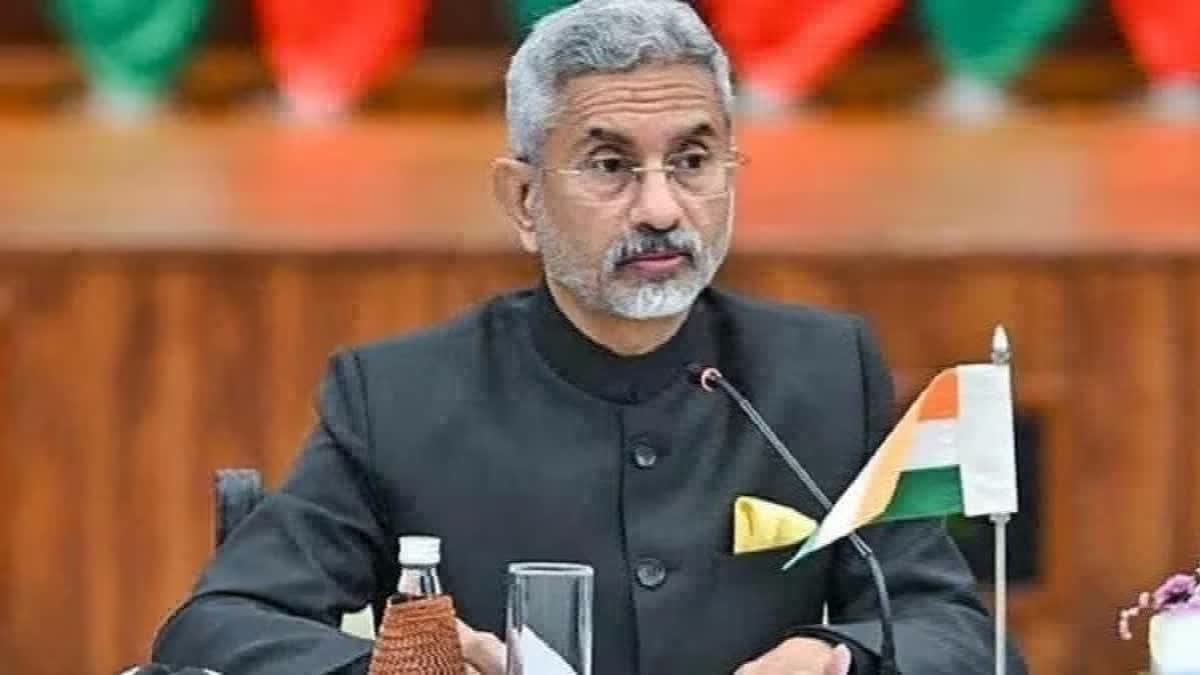New Delhi: In a significant diplomatic stride, India's External Affairs Minister (EAM) Jaishankar will visit Pakistan later this month to attend the Sanghai Cooperation Organisation ( SCO) summit, marking a significant moment in the India-Pakistan relations.
This visit comes in the backdrop of the strained ties between two countries, which has taken an ugly turn especially after the abrogation of Article 370 in Jammu and Kashmir.
Whatsoever, this visit by an Indian minister is carefully watched by the whole world and has gained attention given the history of tensed relations between the two nations.
Infact, this will be the first visit by an Indian EAM to Pakistan in nine years, with the last being Sushma Swaraj’s trip in 2015. However, Jaishankar’s visit is not meant to mend bilateral ties but to participate in the multilateral SCO event, which is hosted by Pakistan this year.
While there are lot of speculation and discussion pertaining to the geopolitical implications of Jaishankar's presence in Pakistan, the External Affairs Minister has cleared the purpose of his visit.
Speaking at the Sardar Patel Lecture on Governance in New Delhi, Jaishankar said that his trip is purely for the SCO summit and not for any bilateral discussions with Pakistan. "I am not going there to discuss India-Pakistan relations but to be a good member of the SCO," Jaishankar said.
On Friday last week, the Ministry of External Affairs spokesperson, Randhir Jaiswal cleared the air confirming that EAM Jaishankar will lead a delegation to Pakistan for the SCO summit which will be held in Islamabad on October 15 and 16.
Last month, a heated word of exchange took place between India and Pakistan at the 79th session of UNGA in New York. External Affairs Minister slammed Pakistan calling it a 'dysfunctional nation coveting the lands of others', after Pakistan PM Shehbaz Sharif did not leave a chance to rake up the Kashmir issue at the UN.
EAM was delivering his remarks at the 79th United Nation General assembly in New York today. Minister Jaishankar said, "A dysfunctional nation coveting the lands of others must be exposed and must be countered. We heard some bizarre assertions from it at this forum yesterday. So let me make India’s position perfectly clear".
In his remarks at the UNGA, Pakistan PM urged India to reverse the abrogation of Article 370 to secure durable peace. He urged India to enter into a dialogue for a peaceful resolution of the Jammu and Kashmir issue in accordance with the UN Security resolutions and the wishes of the Kashmiri people.
India-Pakistan relations
India-Pakistan relations have been historically complex and often contentious, marked by deep-seated political, territorial and cultural issues.
The 1947 partition of British India into India and Pakistan led to significant violence and the dispute over the Kashmir region, which both countries claim. This conflict has triggered multiple wars (1947, 1965 and 1999) and ongoing military tensions.
India accuses Pakistan of supporting militant groups that conduct terrorist activities in India, particularly in Kashmir. High-profile attacks, like the 2001 Indian Parliament attack and the 2008 Mumbai attacks, have exacerbated tensions.
There have been various attempts at peace talks, including the Lahore Declaration in 1999 and the Agra Summit in 2001, but these efforts often falter due to mutual distrust and differing political agendas and Pakistan's nefarious act of perpetrating terrorism.
Both nations possess nuclear weapons, which complicates the security landscape and acts as a deterrent against full-scale wars.
Relations have fluctuated in recent years, with periods of heightened tensions and occasional diplomatic engagement, influenced by changing political dynamics in both countries.
India-Pakistan relations remain a critical and sensitive issue in South Asian geopolitics.
The relations took a ugly turn, primarily due to territorial disputes, especially over Kashmir. Article 370 of the Indian Constitution granted special autonomy to the region of Jammu and Kashmir, allowing it to have its own constitution and considerable self-governance.
In August 2019, the Indian government revoked Article 370, integrating Jammu and Kashmir more directly into India. This move was controversial and intensified tension between India and Pakistan, with the latter opposing the revocation and calling for international intervention. The revocation also led to heightened military and political tensions in the region, further complicating the already fraught bilateral relations.
The Kashmir conflict remains a key issue, with both countries claiming the region and engaging in military confrontations, diplomatic standoffs, and negotiations over the years. The situation is further complicated by factors such as terrorism, national identity, and international alliances.
India's role in SCO
India's role in the Shanghai Cooperation Organisation (SCO) has evolved significantly since it became a full member in 2017. India engages in counter-terrorism initiatives within the SCO framework, emphasising regional security and stability. It shares concerns about terrorism and extremism in Central Asia.
The country seeks to enhance trade and economic ties with SCO members, focusing on connectivity projects and regional economic integration, although its involvement is sometimes complicated by geopolitical tensions.
The SCO promotes cultural ties among member states. India contributes through initiatives that showcase its rich heritage and promote people-to-people connections.
India uses the SCO platform to strengthen diplomatic ties with Central Asian nations and other members, balancing its relationships amid complex geopolitical dynamics, particularly with China and Pakistan.
India's engagement in the SCO reflects its strategic interests in Central Asia and its commitment to regional security and cooperation.
Read more



